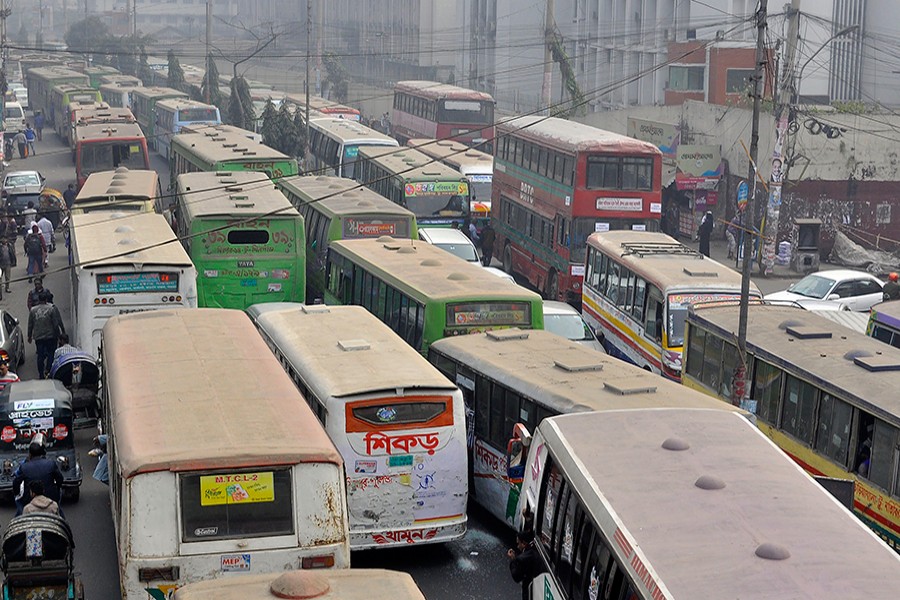Although the number of public buses has ballooned in the country in the past decades, it cannot help reduce public sufferings mainly due to irregularities, experts say.
They blame unhealthy competition, syndication and the lack of proper policy for the sorry state.
According to the data available with the state-run Bangladesh Road Transport Authority (BRTA), more than 45,348 public buses have been registered since 1972.
Of the total, some 32,370 buses were registered in the capital city.
Including 10,458 in Dhaka, a total of 28,061 minibuses got registration from the BRTA across the country during the same period.

Sources said a good number of buses and minibuses are also running across the country without registration.
Faruk Talukdar Sohel, chairman of the Bangladesh Bus-Truck Owners Association, said the number of public buses in the country is adequate against the demand.
"Except some occasions, passengers can avail bus services without trouble," he added.
Besides, the number of other types of vehicles like human-haulers and microbuses is increasing to tackle the passengers' rush, he said.
In reply to a query, Mr Sohel said some 'dishonest' people run their buses without registration.
Irregularities are mostly committed by unregistered vehicle owners, who are mainly responsible for road accidents, he said.
"The authorities should enforce relevant laws to help curb irregularities in the public transport sector," he said.
Sources said the number of buses and new routes has also increased remarkably to cope with a growing number of passengers in the capital.
But the additional number of buses has failed to provide comfortable and safe transport facility on account of irregularities.
Due to insane race between two buses run by a single company called 'Jabal-e-Noor Paribahan', two college students were run over by one of them on the airport road last week.
Terming the number of vehicles in the capital 'adequate', an expert said a scientific traffic system is essential to bring discipline in the transport sector.
"The number of public buses in Dhaka city is well adequate to fulfil the demand, if you think scientifically," said Dr Md Shamsul Hoque, a transport-sector expert and professor of Bangladesh University of Engineering and Technology (BUET).
Though the number of buses is apparently considered insufficient by the commoners, some changes in the transport system will help improve the situation.
"The main drawback to the public transport system in the capital is the existence of too many separate companies," the expert said, adding that they create many problems.
He suggested forming a few companies comprising bus owners and a dedicated lane to help curb illegal race, said Mr Hoque.
"Such a move for ensuring other required facilities may increase bus service productivity three times," he said.
Improved situation will also encourage private car users to prefer public buses, reducing pressure on the city streets.
"In a nutshell, you can look into the success of specialised circular bus services in the city's Gulshan and Hatirjheel areas," he added.


